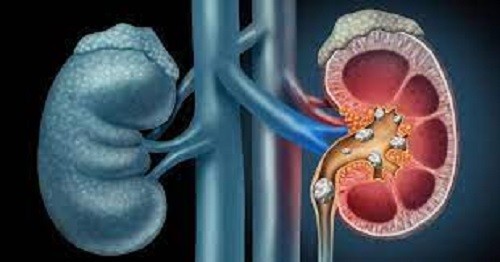
The recently commemorated World Kidney Day (WKD) 2022 has, again, underscored the urgent need for the Nigerian government and other stakeholders in the health sector to pay more serious attention to the prevention, detection and management of kidney disease in the country. Initiated in 2006 by the joint committee of the International Society of Nephrology and the International Federation of Kidney Foundations, WKD is celebrated every second Thursday of March. It seeks to raise awareness about the importance of the kidneys to overall health and to reduce the frequency and impact of kidney disease and its associated health problems worldwide.
The theme of this year’s event – “Kidney Health for All: Bridge the Gap to Better Kidney Care” – is particularly significant for Nigeria. Recent statistics indicate that over 20 million of the country’s citizens are battling with various stages of kidney disease but very few of these are getting the care they deserve. While the global organisers of WKD assert that “a persistent and ongoing chronic kidney disease knowledge gap exists, one that is demonstrable at all levels of healthcare” in Nigeria, however, the avalanche of barriers preventing kidney health for all, and requiring holistic intervention, is much more enormous than knowledge gap.
For instance, during a recent press conference held by the Nigerian Association of Nephrology (NAN), President of the association, Prof. Fatiu Arogundade, stated: “As of today, there is little or no government involvement in renal (kidney-related) care unlike what happens in other countries. Indeed, chronic (long-term) renal care is not included in the NHIS. The state of affairs in Nigeria is that those who develop Chronic Kidney Disease (CKD) are left on their own to pay for renal care. Consequently, many of them die within weeks of that diagnosis. There are private hospitals and few government hospitals that have facilities for kidney transplantation but patients have to pay all bills, which only a small proportion of Nigerians can afford.”
Arogundade added: “Also worrisome is the fact that chronic kidney disease is largely unrecognised and inadequately diagnosed. Most patients present to nephrologists already in advanced stage and at this stage treatment options are very expensive and out of the reach of most Nigerians.”
To worsen the Nigerian situation, the nephrologist-patient ratio in the country is abysmally poor. Indeed, credible reports show that there are only about 250 active nephrologists (kidney care specialists) in Nigeria’s estimated 200 million population – a far cry from the, at least, 120,000 nephrologists that should serve the population. Even at that, the available nephrologists are mostly located in the major cities, where the few kidney care centres in the country are concentrated. This poses the problem of accessibility to millions of Nigerians battling the debilitating condition.
For patients in the cities and others who manage to find their way to the limited kidney care centres, there is another major challenge they must surmount – the astronomical cost of treating or managing their condition. Sadly, only dialysis or a transplant can suffice for a damaged kidney. Presently, dialysis costs as much as N50,000 per session, with about three sessions required in a week; a transplant, on the other hand, can be as costly as N7million or N10 million in Nigeria, and more outside the country. This continues to lead to needless loss of lives, as many patients cannot afford these prohibitive costs.
These grim realities call for decisive steps from the Nigerian government to curtail the rising incidence of kidney disease in the country, as well as mitigating the needless sufferings and deaths that often result from poor management of the condition. We agree with NAN that the Federal Government must, as a matter of urgency, develop a national policy that will ensure that standardised and comprehensive attention is given to kidney care in the country. And the first place to begin – even if it has been repeatedly mentioned on previous occasions – is an upward review of the currently miserable budgetary allocation to the health sector.
As part of this policy also, there should be improved accessibility to kidney care through provision of the necessary facilities for treatment and transplantation in government hospitals across the country. Moreover, importation of such facilities into the country should be free of import duties. The policy should also include measures that will ensure that more nephrologists are trained and retained in the country’s health sector. Additionally, the cost of treating kidney disease should be subsidised by the government – particularly with the inclusion of chronic kidney disease in the National Health Insurance Scheme (NHIS) coverage to reduce financial burden on patients.
Most importantly however is the need for programmes and campaigns that will help to educate the general public about the functions of the kidney, kidney diseases, prevention and management strategies. With hypertension and diabetes identified as the leading causes of kidney disease, it becomes expedient for caregivers and relevant stakeholders to intensify their public enlightenment campaigns, especially in the area of lifestyle choices.
One area that must be addressed is the menace of illicit herbal concoctions which have been identified as potential poisons to the kidney. Many people who consume such concoctions are illiterates who do not understand the inherent grave dangers to their kidney health. Chronic infections and bleaching creams have also been identified as causes of kidney disease. Efforts must be made by the government to educate the public on these, while also taking necessary steps to make kidney care accessible and affordable for the citizenry.










